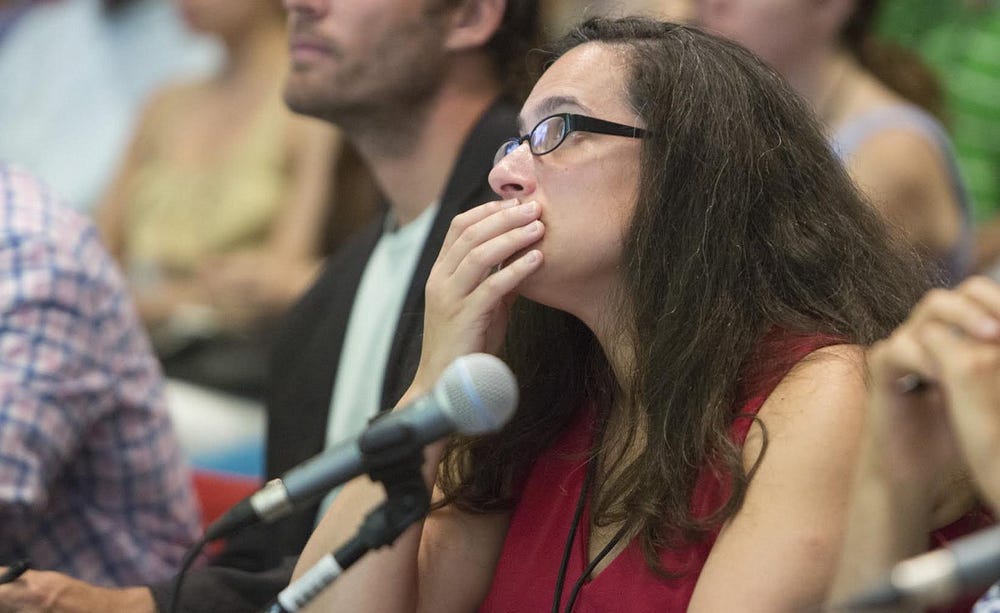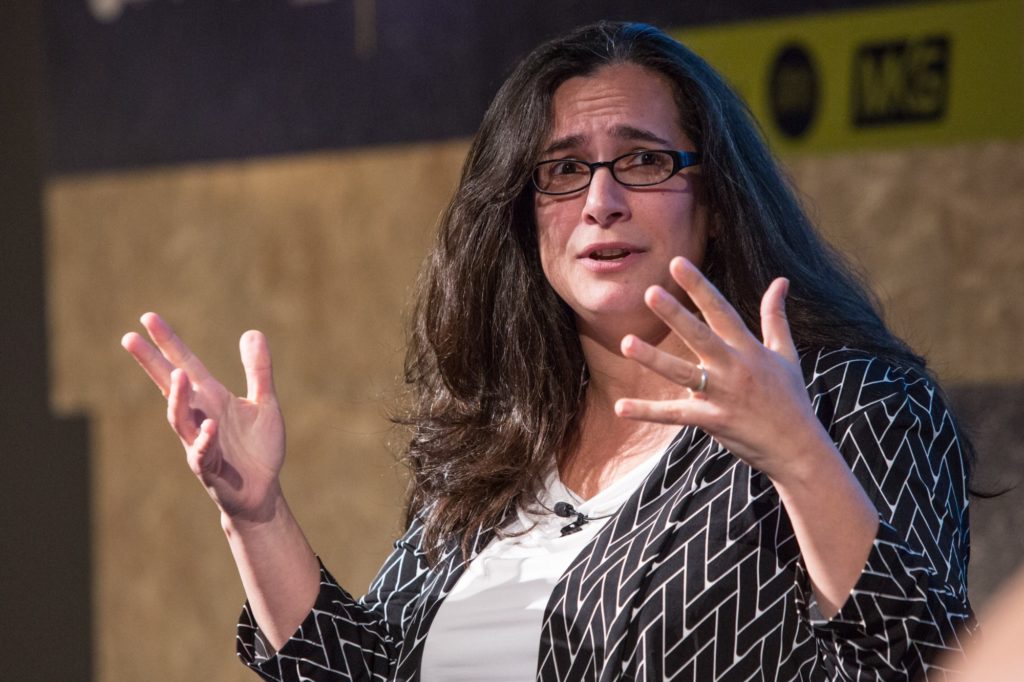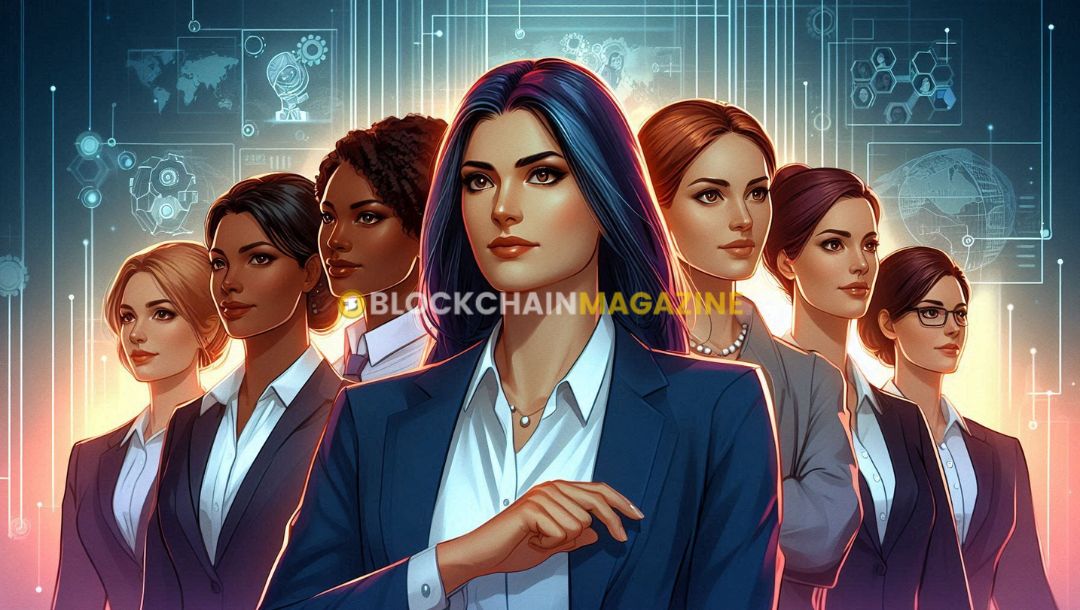13 Blockchain Insider Tips With Amy Vernon, Blockchain Transformed!
“I’ve Gotten Where I Have By Being Curious, Instead Of Asking People To Do Things For Me, Learned How Those Things Work”- Amy Vernon
“Be curious. I’ve gotten where I have by being curious. Instead of asking people to do things for me, I want to understand how those things work. I once converted a two-prong outlet into a three-prong grounded outlet by researching how to do it (this was before YouTube, I might add), and then doing it. I love figuring out how things work and teaching myself new skills. I taught myself HTML, CSS, and SQL. I’m not an expert in any of them, but that curiosity has enabled me to better communicate with those who are experts and to work with them much more effectively.”
I had the pleasure of interviewing Amy Vernon, who is vice president of community for Rivetz Corp., a Massachusetts-based company that combines the blockchain and trusted computing to provide everyone with a simpler and safer way of interacting with our devices and online services. Amy started her career in journalism at The Miami Herald, where she was a member of the staff who won a Pulitzer Prize for coverage of Hurricane Andrew and its aftermath. She was an inaugural inductee of the New Jersey Social Media Hall of Fame, named the 15th most influential woman in tech on Twitter by Business Insider, and the top female submitter of all time on the old Digg.com. She also co-founded a predictive analytics platform for news publishers and has consulted with a variety of organizations, including the American Museum of Natural History in New York City (yes, the one from “Night at the Museum”).
Thank you so much for doing this with us! What is your “backstory”?
I had planned on being a journalist since the sixth grade. It’s all I really wanted to do. I spent 20 years in newspapers and watched my beloved industry destroy itself (the internet helped, but a lot of the damage was self-inflicted). Anyway, over the past decade, I’ve been immersed in the New York City startup scene, both inside and outside of media. During that time, I was one of the top power users on Digg.com, and I read some posts about something called “Bitcoin”, which seemed to pretend money of some sort. Then I read about “Dogecoin” and was sure it was all pretended.
I’m only half-kidding. I freely admit that at the start, it sounded … strange. I kept my eye on news about it, though, and through Mt. Gox and Silk Road and other crazy news, it kept my attention. Eventually, of course, it morphed into hearing more and more about “blockchain” and then Litecoin and Ethereum and other chains and coins. It wasn’t until last year, however, that I really dived in, and I joined a company with its own token (it had recently completed a token offering) and had to really ramp up my knowledge. It’s been an education.
Can you tell me about the most interesting projects you are working on now?
Well, the company where I work, of course, is quite interesting. We’re using blockchain as a recording/auditing mechanism, providing proof that a known device in a known condition with a known user conducted a specific transaction.
I also am a member of the board of the inaugural Decentralized chapter in New York City — the University of Nicosia, the first accredited university in the world to accept Bitcoin payments and launch an MSc degree in Digital Currency, hosts a conference called Decentralized and is beginning to launch networking chapters around the world, starting with Cyprus and New York. Our goal is to help educate people on the value of the blockchain and to provide support to the burgeoning blockchain and crypto community in the city.
Finally, I also am a founding member of the Crypto Working Group. The group is a community organization made up of those who work in and around the industry, as well as investors. Our goal is to create standards for ICOs, exchanges, and custody — focusing on disclosure standards and best practices, education for governments and corporations, and community development.
None of us are able to achieve success without some help along the way. Is there a particular person who you are grateful towards who helped get you to where you are? Can you share a story about that?
The best advice I ever got was from my boss of nearly 8 years, in the last newspaper I worked at. He encouraged me to find the way of working that worked for me and not to try to emulate how anyone else got things done. It helped me really focus and figure out the style of leadership that was right for me. It sounds obvious, but it’s easy to lose sight of that in the everyday.
More recently, a woman I work with, Michelle Petigny, was in the crypto/blockchain world for several years before I joined. Her guidance in finding the right educational resources was invaluable.
What are the 5 things that most excite you about blockchain and crypto? Why?
5 things that excite me most about blockchain and crypto:
1) The potential for bringing new economic models to help lift the disenfranchised out of poverty
2) New models for identity and privacy
3) It’s a new industry, so no one’s an expert — and anyone can become one if you do the work to learn it
4) The technology itself. A new form of money is just, well, money. The new technologies and ideas coming out of it surpass the “Uber for Banking” model we’ve seen out of the tech industry the past several years.
5) The welcoming nature of most I’ve met in the industry so far. People want the industry to succeed, and work to help others.
What are the 5 things worry you about blockchain and crypto? Why?
5 things that worry me most about blockchain and crypto:
1) Those like other areas of tech, it will become the playground of the rich and richer
2) That even though it has world-changing potential, it won’t actually reflect the world
3) That too much is expected too quickly
4) That its promise of decentralization won’t last, with too many having a vested interest in centralizing operations (such as Bitcoin mining operations)
5) Those people whose voices are needed in the industry are turned off by what they assume to be a difficult technology to understand

How have you used your success to bring goodness to the world? Can you share a story?
As someone who’s been working in, on, and around the internet for a long time, I’ve seen the wonderful and the horrible. To counter the latter, I joined the board of directors of CiviliNation, an organization dedicated to bringing civility to the online world. I don’t know if I’ve succeeded in bringing goodness to the world, but I definitely try — and I strive to daily in my interactions with others.
What 3 things would you advise someone who wanted to emulate your career? Can you share an example for each idea?
1) Be honest. I can’t tell you how valuable my honesty has been. There have been times I’ve gotten blowback and have been harmed by being honest, but the benefits far outweigh the negatives. And in saying, “be honest”, I don’t mean rude. You can be blunt and honest with people without doing it rudely. I don’t always succeed, and some people don’t want to hear the truth, they just want someone to say yes. If you can live with that, I guess, go for it. Otherwise, stay true to yourself.
2) Be flexible. This probably should be №1. I spent 20 years in traditional newspaper journalism. It was my flexibility that has led to a post-journalism career that throws recruiters for a loop. I’ve done so many different things and never said no to a challenge that no challenge scares me anymore. By being flexible, I’ve been able to do things I would never have dreamed of even 10 years ago. Co-founding a predictive analytics startup, for example. The idea that that was me? Mind-blowing to my old self, but perfectly natural to me now.
3) Be curious. I’ve gotten where I have by being curious. Instead of asking people to do things for me, I want to understand how those things work. I once converted a two-prong outlet into a three-prong grounded outlet by researching how to do it (this was before YouTube, I might add), and then doing it. I love figuring out how things work and teaching myself new skills. I taught myself HTML, CSS, and SQL. I’m not an expert in any of them, but that curiosity has enabled me to better communicate with those who are experts and to work with them much more effectively.
Stay informed with daily updates from Blockchain Magazine on Google News. Click here to follow us and mark as favorite: [Blockchain Magazine on Google News].
Get Blockchain Insights In Inbox
Stay ahead of the curve with expert analysis and market updates.
latest from tech
Disclaimer: Any post shared by a third-party agency are sponsored and Blockchain Magazine has no views on any such posts. The views and opinions expressed in this post are those of the clients and do not necessarily reflect the official policy or position of Blockchain Magazine. The information provided in this post is for informational purposes only and should not be considered as financial, investment, or professional advice. Blockchain Magazine does not endorse or promote any specific products, services, or companies mentioned in this posts. Readers are encouraged to conduct their own research and consult with a qualified professional before making any financial decisions. The featured image used is just a creative depiction of the title and it does not intend to hurt sentiments of any person or institution. If it hurts anyone sentiments, please do not hesitate to reach out to Blockchain Magazine.

 Bitcoin
Bitcoin  Ethereum
Ethereum  XRP
XRP  Tether
Tether  Solana
Solana  USDC
USDC  Dogecoin
Dogecoin  Cardano
Cardano  Lido Staked Ether
Lido Staked Ether  TRON
TRON  Wrapped Bitcoin
Wrapped Bitcoin  Wrapped stETH
Wrapped stETH  Chainlink
Chainlink  Avalanche
Avalanche  Sui
Sui  Stellar
Stellar  Litecoin
Litecoin  Toncoin
Toncoin  Shiba Inu
Shiba Inu  Hedera
Hedera  LEO Token
LEO Token  USDS
USDS  Hyperliquid
Hyperliquid  Polkadot
Polkadot  WETH
WETH  MANTRA
MANTRA  Bitcoin Cash
Bitcoin Cash  Ethena USDe
Ethena USDe  Bitget Token
Bitget Token  Wrapped eETH
Wrapped eETH  Uniswap
Uniswap  Monero
Monero  NEAR Protocol
NEAR Protocol  Pepe
Pepe  WhiteBIT Coin
WhiteBIT Coin  Aave
Aave  Bittensor
Bittensor  Ondo
Ondo  Aptos
Aptos  Internet Computer
Internet Computer  Dai
Dai  Official Trump
Official Trump  Ethereum Classic
Ethereum Classic  Mantle
Mantle  Tokenize Xchange
Tokenize Xchange  OKB
OKB  Gate
Gate  sUSDS
sUSDS  Coinbase Wrapped BTC
Coinbase Wrapped BTC 




